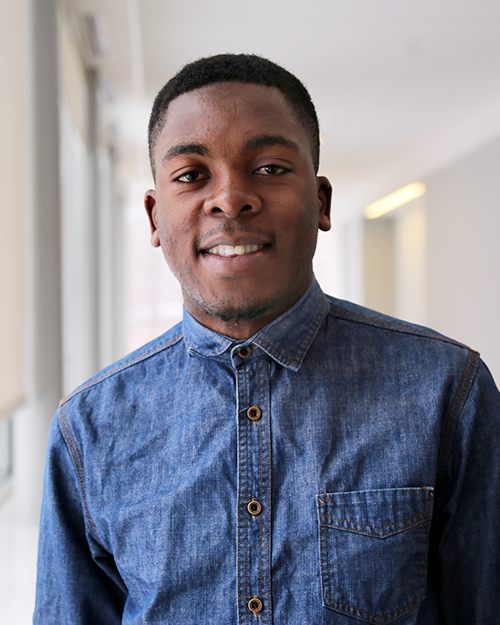
Ever since he was five years old, Zizwa Mwafulirwa wanted to be a doctor. Mwafulirwa grew up in a small village in rural northern Malawi, the youngest of eight children raised by a single mother. “My village at that time was facing a lot of health issues, a lot of malnutrition,” he says. “That’s how I started developing an interest in medicine.”
He credits his education to his mother, “a very strong woman,” who encouraged all of her children to attend school for as long as possible. Mwafulirwa excelled in school and achieved a near-perfect score on his high school final exams. He remembers sitting around the radio with his family in their village, and hearing his name announced with the other highest-scoring students in the country. Not only was this achievement a moment of great pride—his exam score also guaranteed him a government scholarship to attend medical school at the University of Malawi.
Six years later, Mwafulirwa graduated from medical school and returned home to await the start of his mandatory training internship with the Ministry of Health. “Sometimes it takes up to a year before you are invited to start the internship,” he says. “Instead of just sitting home and doing nothing, I wanted to do something. I couldn’t yet practice medicine, but I had some skills that maybe could help people.”
He applied to CorpsAfrica, a nonprofit that gives emerging leaders in Africa the opportunity to do a Peace Corps-like program in their own communities. As a CorpsAfrica volunteer, he conducted community health outreach at a rural hospital and founded a support group for people living with HIV/AIDS.
After his service with CorpsAfrica, Mwafulirwa conducted his internship with the Ministry of Health, serving at two general hospitals in Malawi. “I wanted to become medical doctor because of the need in my community. I loved my patients in the internship, but I was working in a broken system, to be honest,” he says. “The whole country has about 500 physicians for a population of 20 million. With the limited health care resources, this system directly favors the rich and people who live in urban areas.”
“These are really big problems that I wasn’t going to fix it by sitting in a clinic,” he continues. “Instead of me dealing with a patient’s health problem that already developed, maybe I could work on a way to make sure that problem doesn’t come up at all. To take more of a systemic approach. I have passion for practicing medicine and I’m trying to find a way to do both.”
Mwafulirwa enrolled in the Heller School’s MS in Global Health Policy and Management program in August of 2019. He remembers feeling so nervous at first. “It was my first time outside of my country. The staff during orientation recognized the sacrifices that everyone had made in order to come here, which was very important.
“Sometimes when you have opportunities like these, people tend to make you feel like ‘you’re lucky to be here,’ but it was more like, ‘we’re lucky to have you, you deserve this opportunity.’ It was really encouraging.”
After graduating, Mwafulirwa intends to return to Malawi and improve the nation’s health care system with the skills he’s gained at Heller. Some of the key problems he sees are the need to expand coverage to all Malawians, to more equitably allocate health care resources, and to retain the country’s already small number of physicians.
“We have a very big problem of losing physicians,” he explains. “It is said that there are a lot more Malawian doctors in Manchester city in the UK than there are in Malawi, which is a big concern. It doesn’t make sense why we should be losing physicians after training. There are incentive structures and other ways we can retain physicians—these are the things I’m learning about in this program.
“I really feel like I’m being equipped with the tools that I’m going to use when I go back home.”
